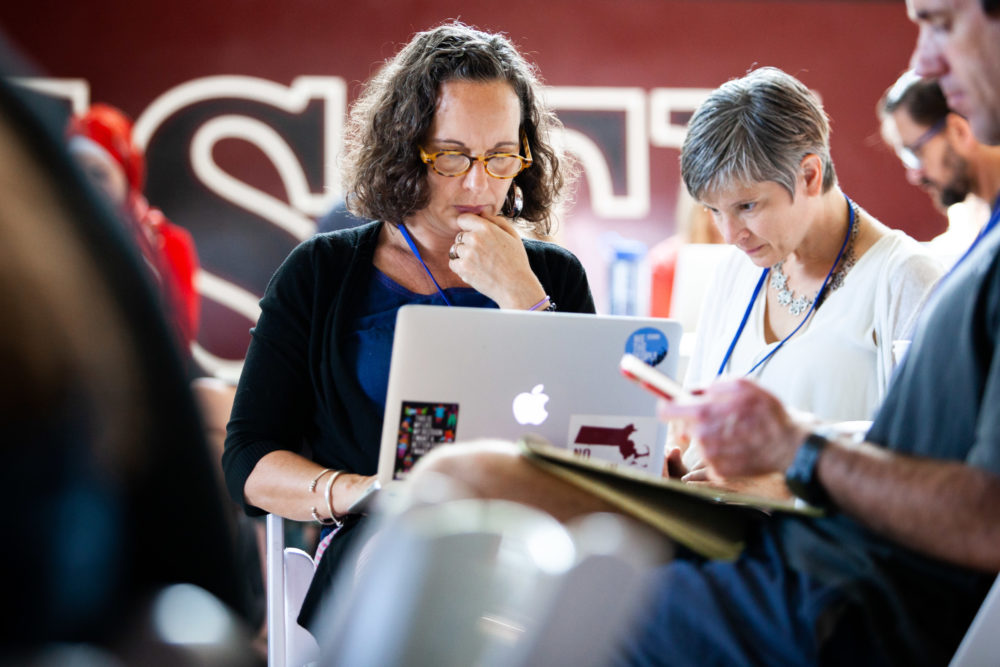20 Guiding Questions and 10 Resources for Team Meetings
We have so many opportunities to meet, reflect, and plan during the school year. Are we using that time to the best of our ability? We offer some potential guiding questions — and a playlist of resources — to design meaningful meetings.
20 Guiding Questions
Looking Ahead
- How do I want to grow as an educator?
- What am I most eager to change? What am I most anxious about changing?
- How can we, as a team, grow and thrive together? How will we work together?
- How can we be kind to our future selves? What can we do now to best prepare for our future? Imagining ourselves on the first day of school and at the milestone moments beyond that, what will want to have or know at that point?
Looking Back/Reflection
- This summer, what did I learn about my community? the world around me? my interests? myself?
- How did I take care of myself or nurture myself this summer? How might this extend into the new school year?
- What’s the best thing I consumed this summer (this could be food, a podcast, a book, an article, a movie, etc)?
Professional Learning
- How might I expand my professional network? What is a networking tool I want to try?
- Who is a person (inside or outside of school) whom I want to establish a deeper professional relationship with? When can we schedule regular “thought partner” meetings?
- How might I find the time to learn something new? What might that new skill or topic be?
Rethinking School
- What are some changes that I would like to see in my students or my classroom? What can I do to make those changes happen or at least start the process of change?
- How might we examine grading practices, looking for evidence of how they influence learning (or not)?
Rethinking the Role of Content
- What is the most important content you teach? Why does this content matter beyond your course?
- What are skills students will need ten years from now? How can these be taught in your classroom? At the school?
Strategy
- For school-wide initiatives, at which point do you want to engage various constituents (Admin., Teachers, Students, Families, etc.)?
- Who leads different initiatives/projects? Who should be involved? Who should be aware? When?
Student Experience
- How might I learn from my previous year’s students so I can continue improving for this year’s students?
- What was something my students discovered on their own that I can help them continue to learn about?
- What is a moment in this year’s school calendar where my students can have an authentic opportunity to show and discuss what they’ve learned?
- How might students learn from adults in fields of their interest? What opportunities exist or can be created to connect students with a real world audience?

10 Resources for Teams
An ASCD Study Guide for What We Know about Grading: What Works, What Doesn’t, and What’s Next by Thomas R. Guskey and Susan M. Brookhart. While the guide is for the authors’ book, the questions here could form the basis for team, division, department, of full faculty small group discussions. These are also suggestive of the challenges that come with grading.
Exploration: We are powerful and natural explorers (Brain Rules by John Medina). If you have 41 seconds, we highly recommend you listen to this short clip from author John Medina. Wait til the end: you will like the last line
Isaac Asimov Asks, “How Do People Get New Ideas?” This 1959 essay by the famous science fiction writer and thinker is a refreshingly concrete and honest take on creativity. There are roles for isolation, for struggle, and for discomfort in creativity as much as there are roles for joy, collaboration, and imagination.
Learning vs. Performance: A Distinction Every Educator Should Know Cognitive scientist Nick Soderstrom summarizes his research on educators’ over-reliance on performance as an indicator of learning. Learning is far more complex and ongoing than a single test can show, and Soderstrom reminds us that our focus should be on long-term transfer of knowledge, a goal that might be in conflict with a lot of the short-term demands of teaching.
On the Innovation Journey - Interview with Tim Fish, NAIS’s first Chief Innovation Officer, who provides models/examples of change management and innovation at independent schools.
Research: Foundation of Psychological Safety Fuels High Performing, Innovative Teams “In a massive two-year study at Google, the highest performing and most innovative teams had one thing in common: psychological safety, the belief that it is acceptable to voice your opinion and that you won’t be punished when you make a mistake.” This article includes information about psychological safety and innovation as well as action-steps on how to improve your team’s performance.
The 1-3-20 Podcast with Daniel Pink: The Secrets of Highly Successful Groups with Dan Coyle, author of The Culture Code. Through 1 book, 3 questions, and in 20 minutes, Daniel Pink interviews Dan Coyle, who shares amazing insights about what enables groups to thrive. At the heart of his insights: establishing psychological safety. Further, he gets at strategies for building psychological safety and leading groups to thrive.
The Forgotten Element of Instructional Leadership: Grading by Thomas R. Guskey. While new efforts are underway to rethink grading and reporting of student learning, most schools rely on traditional practices with long histories. Guskey encourages leaders to start looking at grading, which his research shows is often not a priority, and to improve “how educators working in a common setting can use grades to communicate meaningful information about students' performance.” He doesn’t make the case for the current system but gets the reality of radical change and so aims to make clear the problems we can respond to within the current system.
What Does Stress Really Do To Our Bodies? episode of the podcast Part-Time Genius. Smart and cheerful co-hosts Mangesh Hattikudur and Will Pearson (also the co-founders of Mental Floss) do a deep dive on stress: different responses to it, benefits and detractions of it, and ways to relieve it.
Another suggestion for educators and school-based teams? Join us for a future Rethinking School course. Featuring ALL NEW panelists and resources for 2019-2020, our Rethinking School series is back! Register for one (or more) of all five updated courses.
How are you preparing for the new school year? What resources and questions are you using to guide your meetings? Share with us on Twitter @GOALearning or drop us a line at hello@GlobalOnlineAcademy.org.
